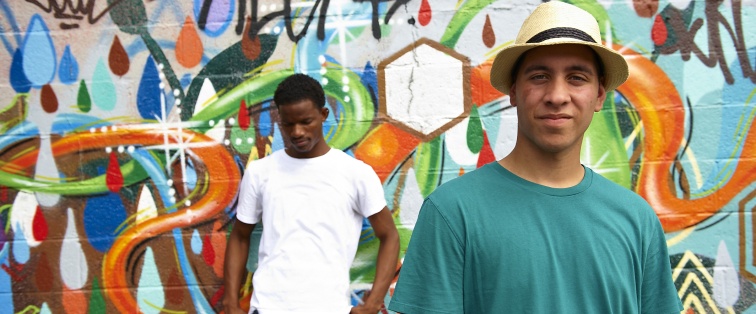Hip Hop for Philly and the iknowUshould2 Campaign: It's Time for All Teens to Get Tested for HIV

Each year in the U.S. there are approximately 50,000 new HIV infections. While adolescents and young adults make up only one-quarter of the general population, they represent almost 40% of these new cases. Given this, it is crucial to provide HIV testing for this age group. Not only does testing lead to earlier diagnosis and improved outcomes for those testing positive, but it can also provide a great opportunity for sex education and prevention of HIV infection in those who test negative. Given this, many organizations (Centers for Disease Control (CDC), American Academy of Pediatrics (AAP), and U.S. Preventive Services Task Force (USPSTF )) recommend routine HIV screening in adolescents. Despite the clear public health recommendations, however, testing just isn’t happening. Recent data from the CDC Youth Risk Behavior Survey (YRBS) show that fewer than 25% of teens who had ever been sexually active were tested for HIV. So why is there such a huge gap between policy and practice?
One issue is that testing in health care settings ideally involves providers talking with their patients about sexual activity and risk factors; this can be difficult for providers, and a recent study showed that pediatricians spent on average only 36 seconds talking with teens about sex. In addition, our research also shows that pediatric primary care providers’ and emergency department doctors’ knowledge of HIV screening recommendations is poor. Providers also identified several barriers to testing, such as addressing concerns about confidentiality, counseling time, and follow-up of results.
Another big factor is that teens often don't seek regular health care, and also experience many barriers to seeking medical care for testing. Our work has shown that many youth who report interest in getting tested for HIV are worried about confidentiality and often think that they will have to have invasive procedures to get tested. In fact, providers must legally keep this information confidential and testing for most sexually transmitted infections and HIV can be performed through urine samples, cheek swabs, and/or fingersticks for a small blood sample.
Clearly, work needs to be done to improve the unacceptably low rates of HIV testing. The Children’s Hospital of Philadelphia’s Adolescent Initiative (CHOP AI) is leading and partnering in several efforts locally to address this issue.
In September 2012, we launched the iknowUshould2 campaign, a youth-driven media campaign targeted at adolescents and young adults aged 13-24 years in Philadelphia to improve adolescent knowledge and testing behaviors for Sexually Transmitted Infections (STIs) such as gonorrhea, chlamydia, syphilis, and HIV. The campaign reaches youth by using a combination of traditional media (print advertisements, t-shirts, radio, hotline), the campaign website, social media (Facebook, Twitter, Instagram, YouTube), and face-to-face community outreach. Our recently published study evaluating the campaign demonstrated that it's feasible to engage Philadelphia youth in conversations about sexual health through social media. Almost half of the youth had never been tested before and two-thirds of these youth reported an intention to seek testing in the next six months after interacting with the campaign. We also found a significant increase in the number of adolescents 13-17 years old getting tested and the number of all youth getting tested for HIV and Syphilis after the campaign launched. In the next phase of the campaign we plan to increase our social media presence and to get providers more involved since they are key to successfully increasing access to testing for youth.
The CHOP Adolescent Initiative is also partnering with Philadelphia FIGHT, the city's largest AIDS services organization, for the third year of Hip Hop for Philly. Hip Hop for Philly’s goals are to encourage youth to educate themselves and their community about safe and healthy behaviors, to encourage youth to know their HIV status, to provide youth with inspiring role models, and to increase opportunities for HIV testing within their community. Following the success of 2013 and 2014, the project will again provide free, rapid HIV/STI testing and health education services to 1,200 Philadelphia youth during the month of June. On National HIV Testing Day (June 27, 2015) there will be a concert for the 1,200 youth who participated.
February is national condom awareness month, which is a great time to be reminded that sexually active teens should be routinely tested for HIV infection. In order to help teens to grow up to be healthy adults, parents and doctors should talk openly about relationships, love and sex, and teach them that testing is a key part of being healthy and responsible.
Click here if you want to learn more about Hip Hop for Philly, iknowUshould2, or the CHOP Adolescent Initiative.
